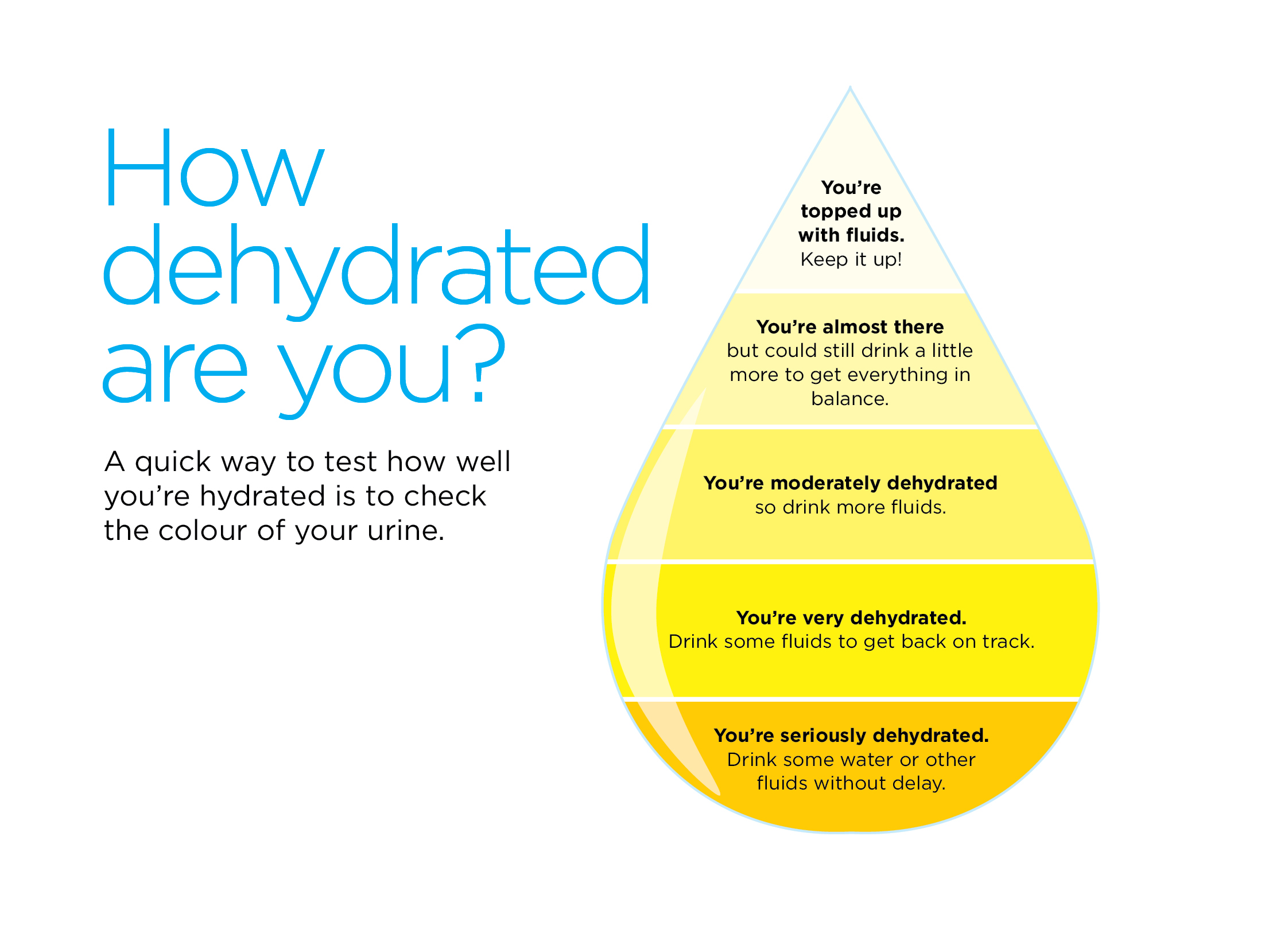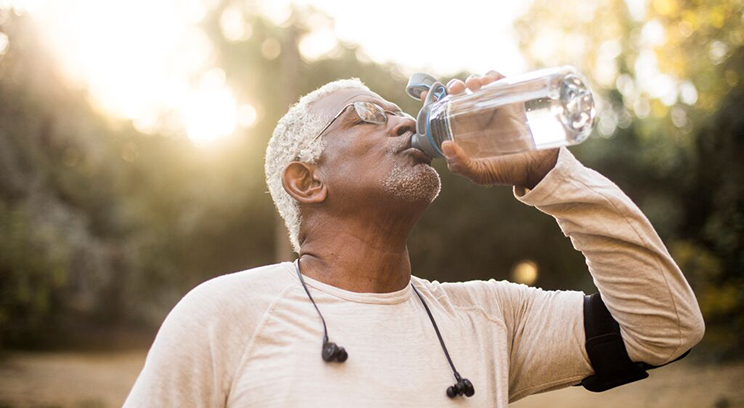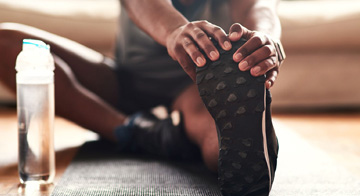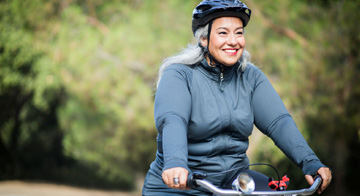As the world becomes increasingly health conscious1, people are naturally looking at how to stay hydrated2 and healthy. But with so many different opinions3 on how much water we should drink, it can be hard to know how much is enough.
Georgia Puckett, Specialist Dietitian at Cromwell Hospital, shares more about this topic along with tips to help you stay hydrated and meet your recommended water intake goals.
Why daily water intake is important – and how much we should be drinking
Drinking enough water can help keep our skin looking healthy and is also thought to help improve our mood and cognitive function.
Water is essential to our bodies, as it helps to regulate body temperature, transport nutrients, and remove waste. Drinking enough water can help keep our skin looking healthy and is also thought to help improve our mood and cognitive function. And, conversely, not drinking enough water can lead to dehydration - causing fatigue, headaches, and other unpleasant symptoms.
While it's true that most of the fluid you need comes from what you drink, it's also important to remember that some fluids come from the foods you eat. Foods such as soups, fruits and vegetables are all great sources of hydration. To make sure that your body is properly hydrated, it's important to make sure that the amount of fluid your body loses each day is replaced by the fluids you drink or get from food.
The daily recommended water intake for adults is roughly 1.5 to 2 litres of fluid. If a mug is around 250ml and a medium glass about 200ml, that means drinking about 8-10 glasses or mugs of fluid per day. Children need less and pregnant women need to drink a little more.4
One of the best ways to determine whether you have consumed enough water is to monitor the colour of your urine. If you are hydrated it should be pale in colour.
It is also possible to drink too much water – try to find a healthy balance as drinking too much water can also have negative implications on your health.
Georgia reminds us that one size doesn’t fit all: “There are many factors that affect our individual fluid needs such as age, climate, and physical activity. Additionally, certain medications and health conditions may also affect an individual's fluid needs which is why it’s always a good idea to consult with a healthcare professional to determine your specific fluid requirements. It is also worth noting that as we age, we can become more vulnerable to dehydration. This means that older adults may need to pay extra attention to their daily water intake to make sure they get enough.”
Understanding water intake and exercise
"It is crucial for individuals who engage in regular physical activity to pay close attention to their hydration levels."
– Georgia Puckett
But what if you're someone who exercises frequently? It's important to note that your water intake needs may be higher if you're physically active.5
Georgia adds: "It is crucial for individuals who engage in regular physical activity to pay close attention to their hydration levels. Aim to take on sips of water every 15-20 minutes during exercise and make sure to drink when you feel thirsty. It is important to replace the water lost through sweat when exercising in order to maintain both performance and well-being.”
Individual factors such as the environment, intensity, and duration of the exercise, as well as your weight and sex can also affect water needs during exercise. If taking part in moderate exercise such as a gym class or workout which is less than one hour in duration, water is often the best fluid to use to hydrate. However, if enduring more strenuous exercise for more than an hour, you could consider using isotonic sports drinks which also contain both carbohydrates and electrolytes.
Travel and water intake
Travelling can impact your hydration levels. The change in climate, altitude and time zones can affect your body's need for water, so it’s important to be mindful of this when planning your travel.
Georgia says: "When travelling, it can be challenging to remember to keep up your water intake and stay hydrated. Drink water regularly whilst you are travelling and after you arrive at your destination. Be aware of consuming alcohol and drinks high in caffeine as these can often contribute to dehydration.”
Tips for increasing water intake
So, how can you take small steps to boost your daily water intake and improve your health and wellbeing? Georgia shares the following tips:
- Always carry a reusable water bottle with you
“Having a water bottle with you will remind you to drink more water and make it more convenient for you to do so.”
- Set reminders on your phone or use a water-tracking app
“This will help you stay on top of your water intake and make sure you're reaching your recommended water intake goals.”
- Add flavour to your water
“If you're not a fan of plain water, try adding a slice of lemon, lime, or cucumber.”
- Eat water-rich foods
“Fruits and vegetables like watermelon, cucumbers, and tomatoes are great sources of hydration.”
- Don’t forget to maintain your water intake when you’re away from home
“Drinking water can help keep you feeling well during periods of travelling and is often thought to help reduce the effects of jet lag. You may also need to drink more water if you’re travelling to a warmer climate.”

Image: Bupa UK




